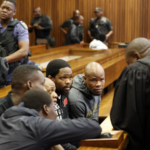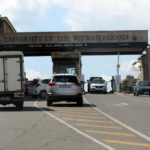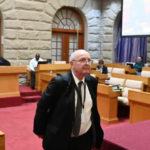Kanyamazane – A deputy principal at a primary school in Mpumalanga is facing serious allegations of sexual abuse involving four Grade 5 pupils, prompting his suspension after months of inaction by education authorities. The alleged abuse, which dates back to December of last year, has left parents outraged and questioning the department's commitment to protecting children.
The school, located in Kanyamazane, approximately 27km east of Mbombela, cannot be named at this stage to avoid potentially identifying the alleged perpetrator before he has been formally charged and has appeared in court.
Despite the principal reportedly alerting the regional education director to the allegations in December, the department's response was slow, leading to a situation where the young victims were allegedly forced to endure the trauma of seeing their alleged abuser at school every day.
The department's spokesperson, Gerald Sambo, confirmed the suspension of the deputy principal, acknowledging the seriousness of the allegations. “The deputy principal remains on precautionary suspension and will not return to the school until the disciplinary process has been finalised,” Sambo stated.
The suspension only came on Wednesday, following media enquiries and mounting pressure from the provincial legislature, raising questions about the department's initial handling of the matter.
Sambo insisted that the department had taken action to ensure the safety of pupils, stating, “The department takes the sexual harassment allegations against the deputy principal seriously and suspended him to ensure the safety of the learners”.
However, the department's actions have been met with criticism, particularly regarding the delay in taking decisive action. Annerie Weber, the Democratic Alliance (DA) spokesperson on education, has been particularly vocal in her condemnation of the department's handling of the case.
Weber argued that the department's inaction had endangered the children, stating, “The department’s inaction forced these children to stay in an unsafe environment for months. That is unacceptable,” Weber said.
Weber further highlighted a perceived lack of policy and support for learners who have been sexually harassed or raped. “Every year, we hear about learners who have been sexually harassed or raped, yet the department has no policy in place to assist these learners,” Weber said.
Weber has called for the department to take proactive steps to protect pupils and enforce the law, and has also questioned why the police were not involved earlier in the process.
“There is a need for punishment for those who do not report such acts. The department cannot investigate itself when children’s rights are at stake,” Weber asserted.
Adding to the concerns, Sambo also stated that the department will conduct an investigation to determine the reasons and circumstances surrounding the deputy principal’s presence at the school while he is on suspension. “The department will conduct an investigation to determine the reasons and circumstances surrounding the deputy principal’s presence at the school while he is on suspension.”
Parents have expressed their frustration and anger over the handling of the case, feeling that their children have been let down by the authorities. One of the affected parents, speaking on condition of anonymity, revealed that they had been warned against speaking out.
“We have been told not to talk now that the department has taken action. But the truth is, we spent months begging for help while our children had to see this man every day at school,” the parent said, painting a picture of a desperate situation where parents felt powerless to protect their children.
The department has not disclosed the specific nature of the reported abuse. However, the matter is considered serious enough to have led to the suspension, indicating the gravity of the allegations.
Weber has also pointed out that the suspension may not have occurred without external pressure. “If it was not for the parents approaching the legislature, the deputy principal would still be at work,” Weber said, suggesting that the department's actions were reactive rather than proactive.

Follow Us on Twitter











